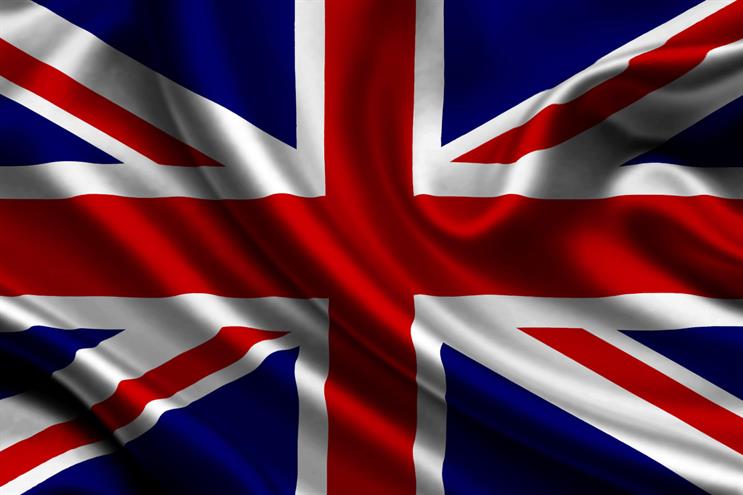Chips. Bingo. Bullingdon. The queue at the Post Office. Farm shops. Ronnie Scott’s. Rizzle Kicks. McDonald’s at 2am. Youth clubs. Feeding the ducks. Grey Goose. Racist abuse. War veterans. Craft beer. Repressed resentment. Tents. Going on a bike ride. Knife crime. 5-a-side football. Ronseal. Ryanair. UKIP. Polski Sklep. Sheep-shearing. UCAS clearing. A thwarted umbrella. Stella. Glastonbury. Picking blackberries. The M4. Anti Social Behaviour Orders. Bottled water. PPI. DFS. BBC.
Britain.
Snapped. Cracked. , almost, cleanly in two.
Brexit over Britain, but it also thrust it into the light. The shattered and we don’t know who we are anymore.
As Griff Witte wrote in The Washington Post, we are "a nation facing the gravest challenge to its identity since it shed its empire".
Right then.
Do we still have a – defined by the OED as "a sense of a nation as a cohesive whole, as represented by distinctive traditions, culture, and language"?
Is the very concept of national identity outdated? The unprecedented connections facilitated by the proliferation of digital media means that our identity is shaped less by physical borders than by the communities and subcultures we choose to connect with. Realistically, what can 65 million people have in common?
And what does "being British" even mean, in this, our new divided reality?
I am perhaps the least qualified person to answer this. But it is a question that needs asking, now more than ever.
Reality is messy. Ideas are neat. Which makes them attractive. Maybe both Brexiters and Remainers were voting for something that doesn’t exist – unilateral autonomy on the one hand, utopian unity on the other.
But this is not a Platonic discussion on the nature of reality. To try and get to grips with what "Britishness" really means in 2016, I had to get out of my own head.
I happen to work for a global advertising network. So in a bid to create much head-scratching on company time, I asked hundreds of communications strategists from around the world what they think defines Britain today.
Amid the cups of tea and red phone boxes, there were some revelations.
We are at once admired for our "freedom of eccentricity" and derided for "apologetic impotence". We "long for a romanticised non-existent ideal" yet we are "calmly cynical". We "drive and think in the opposite direction to most" but "avoid embarrassment at all costs". We are "civilised and trend-setting" but "not very good at speaking other languages".
I was expecting the global picture of Britain to be tainted post-Brexit, but "brand Britain" seems robust, hardy, untorn – if a little frayed around the edges.
But that was hardly a representative survey.
I also scoured that first recourse of the lazy journalist: the Internet. That didn’t get me very far. Beyond patriotic fawning, tourist board rhetoric and questionable (and the odd pre-London Olympics ), no one seems to be asking the question.
Yet half of us are scared for our country’s future, the other half are celebrating in the streets.
People who have never engaged in politics are having political conversations online and in the pub.
The Labour Party hasn’t seen membership levels this high since 1997. New members are joining the Lib Dems at the rate of nearly one a minute. And the percentage of 18- to 24-year-olds saying they would be certain to vote in a general election is in a year.
Whatever our political divisions, we are united in one thing: we care about our country.
Yet Brexit, arguably, is a symptom of a wider anti-establishment narrative that has produced the likes of – on the surface, opposites of several orders of magnitude – Donald Trump and Jeremy Corbyn. Unspoken (and unspeakable) nationalism has been made loud on both sides of the Atlantic by renegade (and similarly unspeakable) politicians. But what idea, what vision are they clinging to?
Britain isn’t a "thing", beyond a geo-political entity. Any claim to a national identity seems, therefore, somewhat meaningless in 2016. Perhaps that’s why the most passionate nationalists hold onto it so fiercely. Why England cheers so loudly when a Scottish man wins the tennis. And why huge multi-nation events like the Olympics are celebrated so intensely – it gives us a sense of belonging to a bigger, more powerful whole. A whole that, perhaps, never really existed.
And herein lies the opportunity: For brands and organisations to unite seemingly disparate groups by offering a sense of identity which nationhood can no longer provide. To offer, at least, a simulacrum of cohesion amidst chaos. Social relevance isn’t about paying lip service to transient consumer trends. It means getting out there – and creating meaning.
Britain, who do you think you are? Perhaps the very question eludes an answer. Perhaps this author needs a cup of tea.
Marie Maurer is planning director at Ogilvy & Mather.


